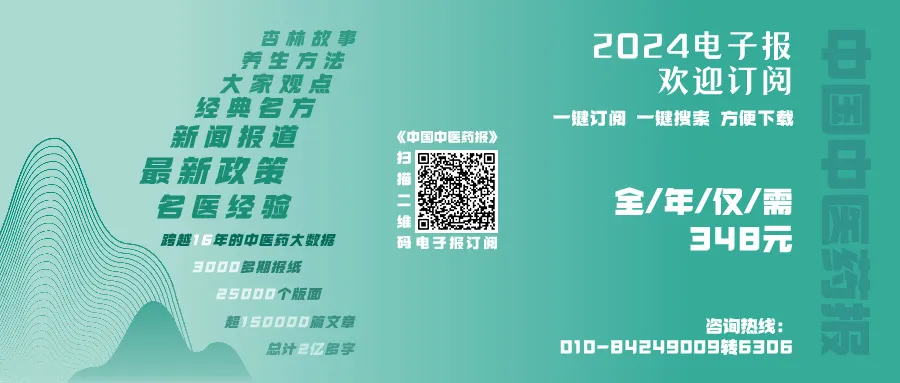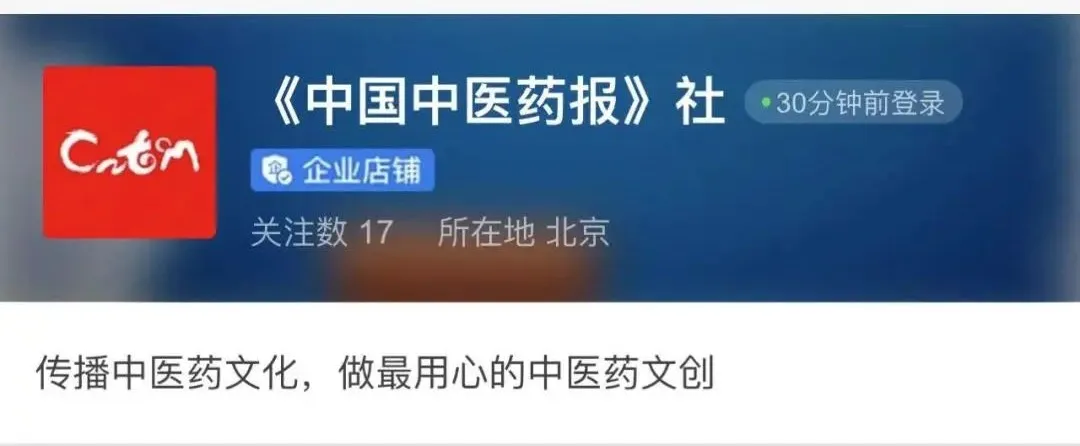 Click the “Public Account” above to subscribe!
Click the “Public Account” above to subscribe!
Source|China Traditional Chinese Medicine News
Written by|Zhou Wenqing, Beijing Yanqing District Maternal and Child Health Hospital
Ancient physicians placed great importance on maintaining smooth bowel movements. Ge Hong believed: “If one wishes to avoid death, the intestines must be free of residue; if one wishes to live long, the intestines must be kept clear.” Zhu Zhenheng also stated in “Danxi’s Heart Method”: “The five flavors enter the stomach, leaving toxins that do not disperse, accumulating over time, causing damage to the harmony, leading to various diseases.” This means that the residues and impurities in the intestines must be continuously and promptly cleared out to ensure the normal physiological functions of the body. Frequent constipation can lead to the disturbance of turbid qi, chaotic qi and blood, and dysfunction of the organs, inducing various diseases.
Traditional Chinese Medicine (TCM) categorizes constipation into two main types: excess constipation and deficiency constipation. Excess constipation includes heat constipation, qi constipation, and cold constipation, while deficiency constipation includes qi deficiency, blood deficiency, and yang deficiency. Constipation in individuals with deficiency and the elderly mostly falls under deficiency constipation. Such patients are often intolerant to aggressive laxatives and are more suitable for dietary therapy, which has the characteristics of combining nourishment and laxation, promoting bowel movements without harming the body’s vital energy, thus facilitating the recovery of the patient’s vital energy and early healing. Below are several delicious dishes suitable for patients with deficiency constipation.

Qi Deficiency: Astragalus and Polygonatum Stewed Rabbit Meat

Patients with qi deficiency constipation often present with: stools that are not dry, difficulty in expelling during defecation, fatigue after bowel movements, shortness of breath, pale complexion, fatigue, and weakness. Such patients can consume Astragalus and Polygonatum Stewed Rabbit Meat to improve their symptoms.
Ingredients: 30g Astragalus (Huang Qi), 12g Polygonatum (Yu Zhu), 250g rabbit meat, appropriate amount of salt.
Method: Cut the rabbit meat into small cubes and place them in a clay pot; clean the Astragalus and Polygonatum, wrap them in clean gauze, and add them to the pot. Simmer on low heat until the rabbit meat is tender, then remove the herb pouch and season with an appropriate amount of salt.
Effects: Tonifies middle qi and moistens the intestines to relieve constipation. Astragalus is one of the most common qi tonics in daily life. It is recorded in “Ben Cao Yi Du” as “benefiting original qi and strengthening the spleen and stomach”; “Ben Cao Xin Bian” considers it “the holy medicine for tonifying qi”; and “Ben Jing Feng Yuan” also records that Astragalus “can tonify the deficiencies of the five organs.” Polygonatum, known as “Wei Rui” in ancient times, is recorded in “Ben Cao Tong Xuan” as “able to tonify the middle, benefit qi, expel heat, and treat all deficiency syndromes.” Rabbit meat, as the main ingredient, also has tonifying properties, with “Ben Cao Xiang Jie” stating that rabbit meat “mainly tonifies the middle and benefits qi.” The combination of these three ingredients creates a delicious dish that tonifies middle qi and moistens the intestines to relieve constipation.

Blood Deficiency: Fo-Ti Egg

Patients with blood deficiency constipation commonly exhibit symptoms such as: dry and hard stools, difficulty in expelling, pale complexion, dizziness, palpitations, shortness of breath, insomnia, forgetfulness, dry mouth, irritability, tinnitus, and soreness in the lower back and knees. Blood deficiency constipation patients can consume Fo-Ti Egg to nourish blood and moisten the intestines, improving constipation.
Ingredients: 6g Fo-Ti (He Shou Wu), 2 eggs, appropriate amounts of scallions, ginger, salt, and cooking wine.
Method: First, wash the Fo-Ti, then place the eggs and Fo-Ti in a pot, add an appropriate amount of water, and include scallions, ginger, salt, and cooking wine. Boil over high heat, then reduce to low heat and cook until the eggs are fully cooked. Afterward, remove the eggs, shell them, and return them to the pot to cook for an additional 2 minutes.
Effects: Nourishes blood and moistens the intestines to relieve constipation. Fo-Ti is a key blood tonic, recorded in “Yao Xing Qie Yong” as “benefiting the liver and kidney, being a good medicine for tonifying yin blood.” Fo-Ti has been used since ancient times to treat hemorrhoids, with “Ben Cao Gang Mu” recording that Fo-Ti “treats five types of hemorrhoids, stops heart pain, and benefits blood and qi.” Eggs are a common food that nourishes blood and qi, with “De Pei Ben Cao” noting their ability to “benefit qi and nourish blood.” The combination of these two ingredients not only nourishes blood and alleviates hemorrhoids but also tonifies both blood and qi, achieving the effects of nourishing blood and moistening the intestines to relieve constipation.

Yang Deficiency: Cistanche Congee

Patients with yang deficiency constipation often present with: difficult and hard stools, difficulty in expelling, cold limbs, preference for warmth and aversion to cold, clear and prolonged urination, cold pain and cramping in the abdomen, and soreness and coldness in the lower back and knees. Yang deficiency constipation patients can consume Cistanche Congee to warm yang and relieve constipation.
Ingredients: 10g Cistanche (Rou Cong Rong), 200g lamb, 150g japonica rice.
Method: First, soak the Cistanche in 100g of water and simmer for 30 minutes, then strain and set aside. Next, slice the lamb and place it in a pot, adding an appropriate amount of water, and simmer until the lamb is tender. In another pot, add the japonica rice and an appropriate amount of water, cooking until the rice is soft and the soup is thick. Then add the Cistanche juice and the stewed lamb to the pot, cook for a moment, then turn off the heat and let it sit covered for 5 minutes.
Effects: Warms yang, tonifies the kidneys, and moistens the intestines to relieve constipation. Cistanche not only tonifies yang but also has the effect of moistening the intestines to relieve constipation. “Ben Cao Gang Mu” records that Cistanche can “benefit the marrow, enhance complexion, prolong life, and greatly tonify yang”; “Ben Cao Yi Du” states that Cistanche “is most effective for constipation.” Lamb is warm in nature and has tonifying properties. “Ben Cao Bei Yao” considers it can “tonify deficiency, benefit qi and blood, strengthen yang, and stimulate appetite.” Japonica rice, as one of the most common staple foods, is also a good product for benefiting qi and nourishing the stomach. “Ben Cao Yan Yi” records that japonica rice can “harmonize the five organs and benefit stomach qi.” The combination of these three ingredients creates a dish that is not only delicious but also warms yang, tonifies the kidneys, and moistens the intestines to relieve constipation.

(Click the image to subscribe to the newspaper)


 (Enter the micro-store to purchase cultural products)
(Enter the micro-store to purchase cultural products)
Welcome to follow us!!
“China Traditional Chinese Medicine News” Douyin ID: 36254766218
Editor|Xu Jing
Review|Bai Xiaoyun, Li Rui

